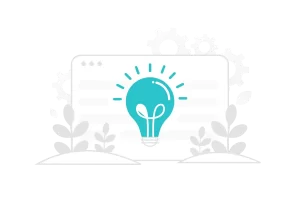When it comes to paying bills or financing a new purchase, installment loans can be a valuable means of accessing fast money. Whether you’re looking to purchase a new motorcycle or consolidate debt, these loans offer a way to manage your expenses effectively. However, like any financial product, installment loans have their own set of advantages and disadvantages. To make an informed decision, you have to understand both sides of the coin.
To pave the way for making the right monetary decision, let’s review installment loans, examining their benefits and potential drawbacks.
Advantages of Installment Loans
Installment loans can be a game-changer in different financial situations. Here are some key advantages:
Financing Large Purchases with Installment Loans
Unlike high-interest credit cards, installment loans allow you to divide the cost of significant purchases, such as a motorcycle or home appliance, into manageable monthly payments. This approach helps you budget effectively, minimizing the monthly pressure. For instance, if you need a new refrigerator but can’t afford to pay upfront, an installment loan can break down the cost into fixed monthly payments tailored to your budget over one to two years.
Predictable Payments
With fixed interest rates and monthly payments, installment loans offer predictability in financial planning. Knowing your exact monthly payment helps you budget effectively, preventing unexpected financial surprises. This predictability enables you to incorporate the loan payment into your budget, enabling responsible spending and ensuring you can cover the monthly payments.
Building Credit with Installment Loans
Timely payments on your installment loan can significantly enhance your credit score. A strong credit rating opens doors to better interest rates on future loans, mortgages, and insurance policies. Installment loans serve as a valuable tool for credit building, especially for individuals with limited credit history. By consistently meeting your monthly obligations, you demonstrate creditworthiness to lenders. If you have bad credit and need an installment loan, read our article on loan options for bad credit.
Debt Consolidation
By consolidating high-interest debts from credit cards or other loans into a single installment loan with a lower interest rate, you can save money and simplify your repayment process. Imagine having multiple credit cards with high balances and varying interest rates. An installment loan can merge these debts into a single, lower-interest loan, reducing overall interest costs and streamlining repayment with a single monthly payment.
Example: Debt Consolidation Installment Loan
Your Existing Debt and Monthly Payments:
- Credit Card 1:
- Balance: $5,000
- Interest Rate: 18% APR
- Monthly Payment: $150
- Credit Card 2:
- Balance: $3,000
- Interest Rate: 22% APR
- Monthly Payment: $90
- Personal Loan:
- Balance: $2,000
- Interest Rate: 15% APR
- Monthly Payment: $60
Existing Debt Balances:
- Total Balance: $10,000
- Total Monthly Payment: $300
New Debt Consolidation Installment Loan:
- Loan Amount: $10,000
- Interest Rate: 10% APR (fixed)
- Loan Term: 3 years (36 months)
- Monthly Payment: $323.53
Comparison of Interest Costs:
- Credit Card 1 Interest Over 3 Years: $1,500
- Credit Card 2 Interest Over 3 Years: $1,320
- Personal Loan Interest Over 3 Years: $300
- Total Interest Without Consolidation: $3,120
- Installment Loan Interest Over 3 Years: $1,616.86
Total Savings:
- Interest Savings: $3,120 – $1,616.86 = $1,503.14
Benefits of the Installment Loan:
- Lower Interest Rate: The 10% APR is lower than most rates on credit cards and payday loans, reducing the overall interest paid.
- Simplified Repayment: One monthly payment of $323.53 replaces multiple credit card payments, making it easier to manage.
- Fixed Term: The loan will be fully paid off in 36 months, providing a clear end date for the debt.

Disadvantages of Installment Loans
While installment loans offer numerous benefits, it’s important to consider the potential drawbacks:
Debt Burden
Taking on an installment loan can increase your overall debt if not used for debt consolidation. Before committing to a loan, ensure you can comfortably manage the monthly payments without straining your budget.
Interest Costs
Despite lower rates compared to credit cards, interest accrues on the loan amount over time.
Risk of Default
Missing or making late installment loan payments can harm your credit score and lead to severe financial repercussions. Late or missed payments will negatively impact your credit score, making it challenging to secure a favorable loan or credit card in the future.
Prepayment Penalties
Certain loans impose fees for early repayment, discouraging borrowers from settling the debt ahead of schedule, even if they have the means to do so. Be mindful of any prepayment penalties associated with the loan.
Risks of Installment Loans
Understanding the potential risks linked to installment loans:
Overborrowing
The convenience of installment loans can tempt you to borrow more than you can realistically afford. Easy online forms and swift approvals may lead to excessive borrowing, triggering a cycle of debt that proves challenging to break free from.
Unexpected Financial Hardship
In the event of job loss or unforeseen expenses, keeping up with installment loan payments can become arduous. These loans establish a fixed monthly obligation, making it difficult to meet payments during financial crises like job loss or medical emergencies.
The Bottom Line
While installment loans offer a valuable financial tool, strategic utilization is key. Evaluate the pros and cons based on your financial circumstances and objectives. Remember, responsible borrowing is vital.
Tips for Securing a Favorable Deal:
- Compare Rates
- Obtain quotes from multiple lenders to compare interest rates and terms before accepting the initial offer.
- Assess Your Credit Score
- Your credit rating significantly influences the interest rate you qualify for. A good credit score often results in lower interest rates. You can use sites like https://www.annualcreditreport.com/ to check your credit for free.
- Inquire About Fees
- Understand any origination fees, prepayment penalties, or additional charges associated with the loan.
- Review Terms Carefully
- Before signing any loan agreement, thoroughly read and comprehend all terms and conditions to ensure clarity and transparency.
How to Choose the Right Installment Loan
Selecting the right installment loan involves more than just comparing interest rates. Consider these factors to ensure you make the best choice:
Loan Amount and Term
Determine the amount you need to borrow and choose a term length that suits your financial situation. Shorter terms generally mean higher monthly payments but less interest paid over the life of the loan. Conversely, longer terms lower the monthly payment but increase the total interest cost.
Interest Rates
Shop around for the best interest rates. Even a slight difference in the rate can significantly affect the total cost of the loan. Use online comparison tools and look at multiple lenders to find the most competitive rates.
Lender Reputation
Choose a reputable lender with positive customer reviews and a solid track record. Check ratings and reviews from other borrowers and the BBB to ensure the lender is trustworthy and offers good customer service. Alternatively, consider using GetMoney.com, a company with great reviews that connects you with a large network of lenders.
Loan Fees
Be aware of any fees associated with the loan, including origination fees, application fees, and prepayment penalties. These fees can add to the overall cost of the loan, so factor them into the total cost.
Repayment Flexibility
Look for loans that offer flexible repayment options. Some lenders may allow you to adjust your payment due date or offer hardship programs in case of financial difficulties.
Common Uses for Installment Loans
Installment loans are versatile and can be used for a variety of purposes:
Home Improvement
Use an installment loan to finance home renovations, repairs, or upgrades. Improving your home can increase its value and improve your living conditions.
Major Purchases
Finance large ticket purchases like vehicles, furniture, or electronics. Spreading the cost over several months or years makes large expenses more manageable.
Debt Consolidation
Combine multiple high-interest debts into a single loan with a lower interest rate. This simplifies repayment and can save you money on interest charges.
Medical Expenses
Cover unexpected medical bills or elective procedures not covered by insurance. An installment loan can provide the funds needed for urgent or planned medical expenses.
Education Costs
Finance educational expenses, such as tuition, books, and other school-related costs. This can be particularly useful for continuing education or vocational training.
Final Thoughts
Installment loans can be a powerful financial tool when used wisely. They offer predictable payments, the ability to finance large purchases, and the opportunity to build credit. However, it’s crucial to weigh the pros and cons and choose a loan that fits your financial situation.
Always consider your ability to repay the loan comfortably and avoid overborrowing. By following the tips outlined above and conducting thorough research, you can secure an installment loan that meets your needs and supports your financial goals.
Looking for more information on consumer loans, including installment loans? Check out these trusted resources:
- The Pew Charitable Trusts: Pew Charitable Trusts provides valuable insights and guidance for borrowers.
- Federal Trade Commission’s Consumer Information page: Learn about your rights and make informed financial decisions at the FTC’s Consumer Information page.

